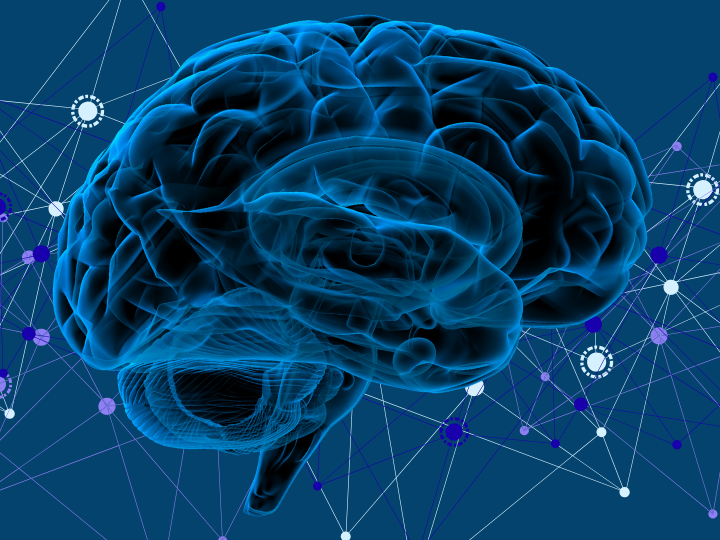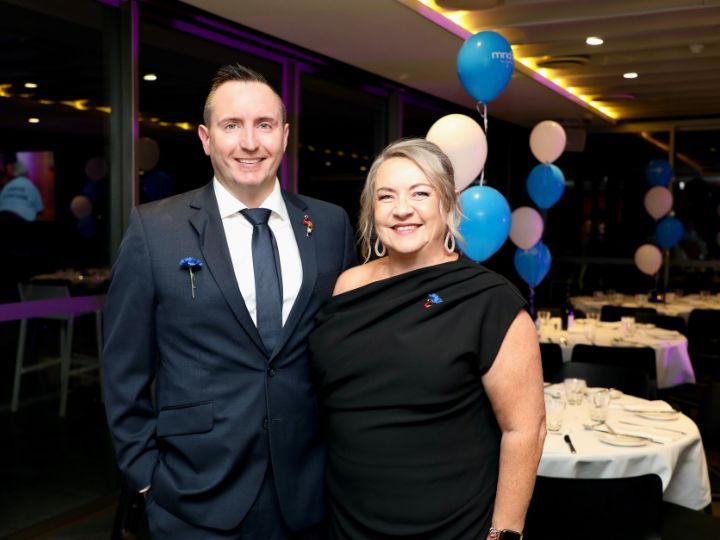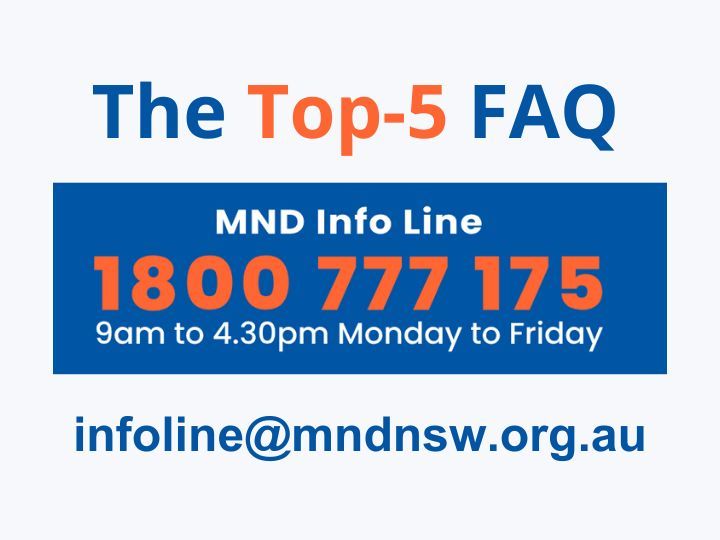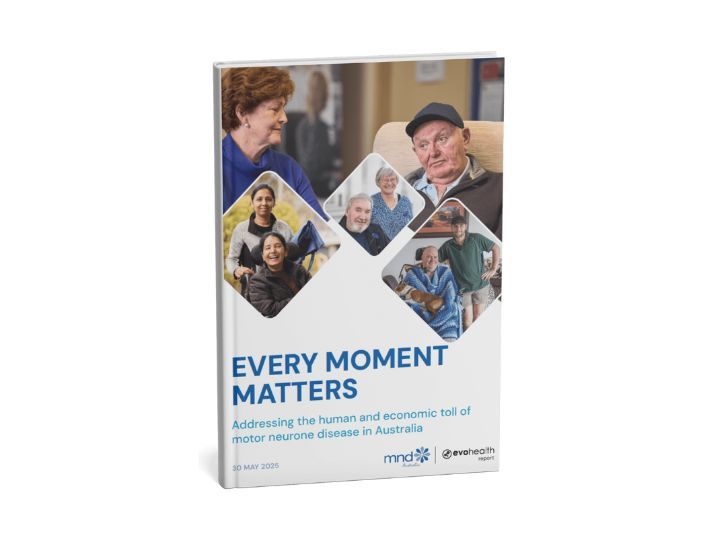Motor Neurone Disease (MND) is an umbrella term for a group of diseases. One disease classified as a type of MND is Progressive Bulbar Palsy (PBP). PBP is sometimes called other names including Bulbar onset MND, Bulbar MND or Pseudobulbar Palsy.[1]
In this article we will use Bulbar MND.
Bulbar MND accounts for around 20% of MND cases.[2]
What is Bulbar MND?
The term bulbar refers to anything related to the medulla oblongata, a portion of the brainstem which control functions including speech, swallowing and breathing.[3]
Bulbar MND is characterised by symptom onset in the mouth, tongue, throat and neck muscles. Generally, people with this diagnosis experience rapid changes to their speech, swallow and the way saliva is managed. The respiratory muscles may also be impacted sooner than other types of MND. Emotional lability or the pseudobulbar effect may be experienced. Limb and trunk muscles are generally affected later.
Bulbar MND Symptoms and Support
Each person diagnosed with MND will experience the disease differently. The below is not a complete list of symptoms and support options.
Breathing
Respiratory muscle weakness can occur at any stage of the disease. People with Bulbar MND may experience changes to breathing earlier. Changes can occur gradually overtime or can be sudden.
There are a number of common signs of respiratory muscles weakness. These may include disturbed sleep or loss of sleep, shallow, faster breathing, morning headaches and increased fatigue.[4]
Breathing support
We recommend all people diagnosed with MND are referred to a respiratory specialist soon after diagnosis. Non-invasive ventilation (NIV) may be prescribed. A respiratory physiotherapist should also be engaged.
Find out more about breathing support and non-invasive ventilation, including a helpful video: Breathing Support & Motor Neurone Disease
Speech and Communication
Dysarthria is a term used to describe changes to speech. Around 80% of people living with MND will experience changes to their speech at different stages of disease progression.[5] The onset of this symptom may occur early for a person living with bulbar MND and continue to progress throughout the disease.
Symptoms of dysarthria differ from person to person. Dysarthria can affect breathing, the ability to make clear sounds, the rhythm of speech and/or the volume of your speech.[6] Speech can become slurred and hard to understand. Dysarthria can also impact eating, drinking and saliva management.[7]
Support for speech and communication
Early speech pathology involvement is recommended.
A speech pathologist can support with the management of speech and communication and can provide advice about communication aids, devices and Augmentative and Alternative Communication (AAC) systems.
Find out more about speech, communication and swallowing:
FlexEquip Equipment
FlexEquip has a range of communication equipment and assistive technology available to hire.
Eating, Drinking and Swallowing
Dysphagia is a term used to describe difficulty swallowing. The onset of this symptom may occur early in the disease for a person living with bulbar MND and continue to progress throughout the disease.
Symptoms of dysphagia impact drinking, chewing, eating and saliva management.[8] Dysphagia can cause gagging or choking when eating or drinking and the feeling of having something stuck in the throat. It can also cause breathlessness when eating and drinking.[9]
Nutritional support and swallowing
Early support from a dietitian is recommended. A speech pathologist can also provide guidance about swallowing, swallowing techniques, saliva management and food consistency.
A dietitian can support to maintain nutrition and fluid intake. The dietitian will work closely with the speech pathologist to develop strategies that work for you.
Find out more about nutritional support: Maintaining Weight & Nutrition with MND
Feeding tube
People living with MND may be advised by their health professional team to consider a feeding tube. This conversation may occur sooner for a person living with Bulbar MND. A referral to a gastroenterologist is required. Please be aware this may be raised early as there are risks associated when the person is experiencing respiratory muscle weakness.[10]
Find out more about feeding tube: Gastrostomy: PEG & RIG
Saliva management issues
Both dysarthria and dysphagia can impact the way a person manages their saliva. Poor lip seal, difficulty swallowing, changes in diet and medications amongst other factors can exacerbate saliva management issues. People living with MND may experience thin watery saliva and/or thick saliva.[11]
Saliva management support
Consult with your health care team, including your speech pathologist and MND clinic for advice about saliva management issues. Depending on your circumstances there may be some medications available. There are also some natural remedies to try.
Watch videos to learn more about the types of saliva issues and some solutions: Managing saliva problems in Motor Neurone Disease (MND) | Royal Brisbane and Women's Hospital
Emotional lability or pseudobulbar effect
MND Australia describes emotional lability is when “emotional responses are different to how you really feel”.[12] This may include uncontrollable laughing, crying or other emotional response.
Support to manage Emotional Lability
Consult your healthcare team for support with managing this symptom.
MND Australia provide this list of tips to manage emotional lability:
- remind yourself or the person you care for that the emotional response is a symptom of MND
- if you can, take slow, deep breaths through the nose
- try to distract yourself or focus on something else
- let your friends, family and healthcare team know about the symptom
- medications.[13]
Multidisciplinary Care: Finding the right health professionals to support
Multidisciplinary care is a term used to describe coordinated input from a range of health and community care professionals. Health professionals work together to recommend symptom management strategies.
Public services are sometimes available through hospitals, community health centres, MND Clinics and outreach. We recommend discussing your options with your current health practitioners, MND Advisor, NDIS Support Coordinator or Case Manager (My Aged Care).
Progression and Life Expectancy
Progression of Bulbar MND can be more rapid. This includes respiratory muscle weakness, that may occur sooner for a person diagnosed with Bulbar MND. It is important to note that each person will experience MND symptoms and the progression of the disease differently.
The life expectancy of a person diagnoses with Bulbar MND is 6 months – 3 years from diagnosis.
How can MND NSW help?
If you have been diagnosed with MND complete our online intake form to get support. We have a range of services available.
MND Advisors can support with information and resources about MND. An Advisor can link you with government services including the National Disability Insurance Scheme (NDIS) or My Aged Care (MAC). They can also advise you about services and supports in your local area.
We offer NDIS Coordination of Support for people with a NDIS plan, and we have a program of supports dedicated to supporting the family members and friends of a person who is living with MND.
The FlexEquip equipment library has been designed to meet most equipment needs for people living with MND. We have an extensive range of communication devices, including iPad, apps and Eye Gaze.
Find out more about our supports and services here: What we do
Need Support?
Contact MND NSW or access our support services for people living with Bulbar MND.
References
[1] Types of MND, MND Connect, MND Australia, Types of MND: ALS, PLS, PBP, PMA, MND/FTD, accessed Aug 2025
[2] Overview of MND, MND Connect, MND Australia, Overview of MND, accessed Aug 2025
[3] Brain, Better Health Channel, Victorian State Government, Brain | Better Health Channel, accessed Aug 2025
[4] Breathing and ventilation factsheet, MND Connect, MND Australia, Breathing & MND Factsheet: Medications & NIV | MND Australia, accessed Aug 2025
[5] Speech and Communication, MND Connect, MND Australia, Speech & Communication with MND, accessed Aug 2025
[6] Dysarthria, healthdirect, Dysarthria | healthdirect, accessed Aug 2025
[7] Dysarthria, Communication Hub, Speech Pathology Australia, Dysarthria, accessed Aug 2025
[8] Dysphagia (difficulty swallowing), healthdirect, Dysphagia (difficulty swallowing) - symptoms, causes and treatment | healthdirect, accessed Aug 2025
[9] Swallowing Difficulty, Speech Pathology Australia, Swallowing, accessed Aug 2025
[10] Gastrostomy: PEG and RIG, MND Connect, MND Australia, Gastrostomy: PEG & RIG, accessed Aug 2025
[11] Eating, Drinking and Swallowing, MND Connect, MND Australia, Eating, Drinking & Swallowing with MND, accessed Aug 2025
[12] Cognition, thinking and behaviour, MND Connect, MND Australia, Cognition, Thinking & Behaviour in MND | MND Australia, accessed Aug 2025
[13] Factsheet Cognitive and bahaviour change, MND Connect, MND Australia, MND Factsheet: Cognitive & Behaviour Change | MND Australia, accessed Aug 2025




